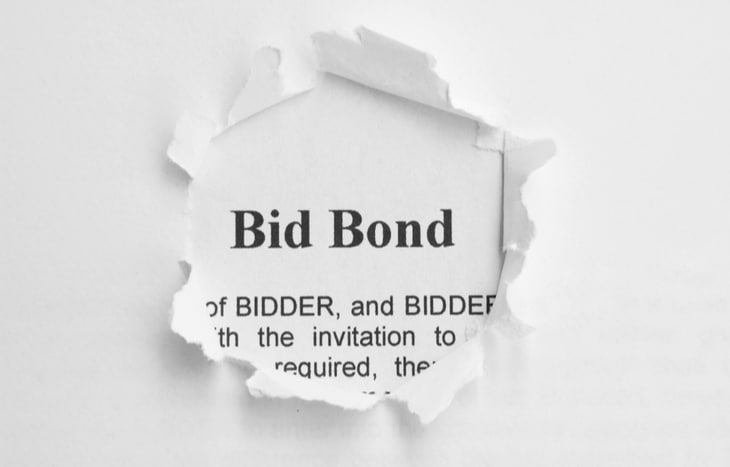Bid Bond | Info for Every Engineer Contractor
Civil engineers understand the competitive nature of the industry and what it takes to be successful. Project managers and contractors who use bid bond is better able to protect their interests and deliver successful projects on time and within budget. We will explore the benefits of using bid bonds and how to make the most of them as civil engineers, project managers, and contractors.
Bid Bond Basics
Before we dive into the benefits of bid bonds, let’s first review what they are and how they work. A bid bond is a type of surety bond that is required to bid on a construction project. The bid security is a guarantee from a surety company that the contractor will enter into a contract and perform the work if they are awarded the project.
There are three parties involved in a bid bond: the obligee, the principal, and the surety. The obligee is the party who requires the bond, in this case, the owner of the construction project. The principal is the contractor who is bidding on the project. The surety is the company that provides the bond and guarantees the performance of the principal.
Now that we understand the basics of bid bonds, let’s explore the benefits of using them.
The Benefits of Using Bid Bonds
There are many benefits to using bid bonds, both for the individual contractor and for the project as a whole. Perhaps the most obvious benefit is that bid bonds allow contractors to bid on projects that they might not otherwise be able to. In other words, bid bonds level the playing field and give contractors of all sizes the chance to compete for projects.
Another benefit of bid bonds is that they help to ensure that projects are completed on time and within budget. By requiring a contractor to put up a bond, the owner of the project is effectively ensuring that the contractor has the financial resources in place to complete the project as agreed upon. This helps to protect the owner’s interests and ensures that the project stays on track.
Finally, bid bonds can help to build trust between the parties involved in a construction project. When a contractor provides a bid security, they are effectively saying that they are committed to the project and that they are confident in their ability to complete the work. This type of trust can go a long way in ensuring a successful construction project.
How to Make the Most of Your Bid Bond
If you are a civil engineer, project manager, or contractor who is planning to use a bid bond, there are a few things you can do to make the most of it. First, make sure you understand the requirements of the bond and what it will take to fulfill your obligations. Second, work with a reputable surety company that you can trust. Third, put together a rock-solid bid that demonstrates your understanding of the project and your ability to complete the work on time and within budget.
By following these simple tips, you can maximize the benefits of using bid bonds and give yourself the best chance of winning a construction bid.
If you want to become a successful bidder, you must learn how to use bid bonds. Bid bonds are an important part of the construction bidding process and they can be confusing. They’re also an integral part of a successful bid, so you must understand how they work to give yourself the best chance of winning a contract.
In this article, we will explore how bid bonds work, but first, let’s take a look at what they are and why you should care about them.
What exactly is a bid bond?
A bid bond is an insurance policy for your contractor license and your business finances. If you win the project and then fail to perform, the owner can file a claim with your surety company which will then reimburse them for their costs along with interest fees (about 1% per month).
Since these claims have high potential costs, most surety companies require contractors to post a significant amount of money (the average is around 10%). This is where it gets interesting…these large amounts of money mean that contractors must put up their funds (that they could be using on other projects) as collateral or use other sources of financing like loans or credit cards to purchase bid bonds.
Bid bonds are sometimes also known as performance bonds, payment bonds, and labor and material payment bonds. It is possible to win a contract without posting a bid bond, but the winning bidder on the project usually has to post the lowest bid bond. The size of the bid bond depends on several factors including:
1) The amount of money needed for the work;
2) The length of time needed for completion of the work;
3) The level or risk involved with the project (i.e., does it require special expertise or a lot of materials?);
4) How many other bidders there are for construction projects in your area;
5) The deadline for completion of the project;
6) Any cost overruns that occur during construction;
7) How long you have been in business;
8) Whether you are an experienced contractor or new to working on projects like this one.
The above can be considered as general requirements, there could be a specific guide for the bid bond in each project.



